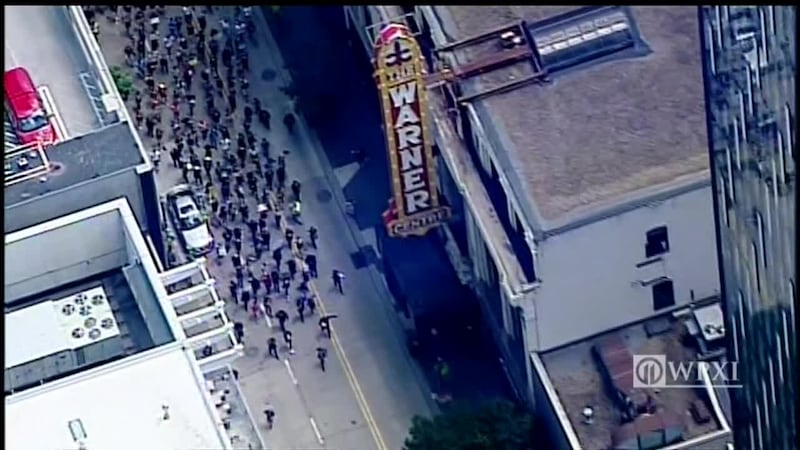PITTSBURGH — To protesters, taking to the streets is a necessary step to create much needed change following the death of George Floyd.
To doctors, large protests are a worrisome sight.
“There’s always a chance that even one superspreader in that protest can cause multiple people to get infected. So, we just have to stay vigilant over the next few weeks,” said Allegheny Health Network pulmonary specialist Dr. Tariq Cheema.
Have questions about the spread of the coronavirus? We have an entire section dedicated to coverage of the outbreak. CLICK HERE for more.
Doctors said a person can show coronavirus symptoms between five and 14 days after exposure, leading to concerns of a spike in cases after thousands of people gathered for initial protests downtown and in East Liberty.
But according to data from the Allegheny County Health Department analyzed by 11 Investigates, that hasn’t happened.
TRENDING NOW:
Since June 3rd, there have been 161 new coronavirus cases during the timeframe when a surge in cases from early protests were the most likely to happen.
That's down from 241 cases in the prior two weeks .
New hospitalizations have also dipped from 34 to 12.
It’s consistent with what the Allegheny County Health Department announced last week.
“We haven’t seen an increase in cases at this point either from protests or other large gatherings which is good news,” said Allegheny County Health Department Director Dr. Debra Bogen.
While the numbers are promising, Cheema said plenty of unknowns remain.
Channel 11 asked Cheema, “Do you feel like, potentially, we dodged a bullet here?”
“Potentially, we may have dodged a bullet. But we’re still not out of the woods,” Cheema said.
As long as protests and large gatherings continue, Cheema says the risk of spreading the coronavirus will grow too.
Cheema said he understands why the protesters are on the streets making their voices heard. His advice is for all protesters to wear a mask and social distance as much as possible.
© 2020 Cox Media Group






